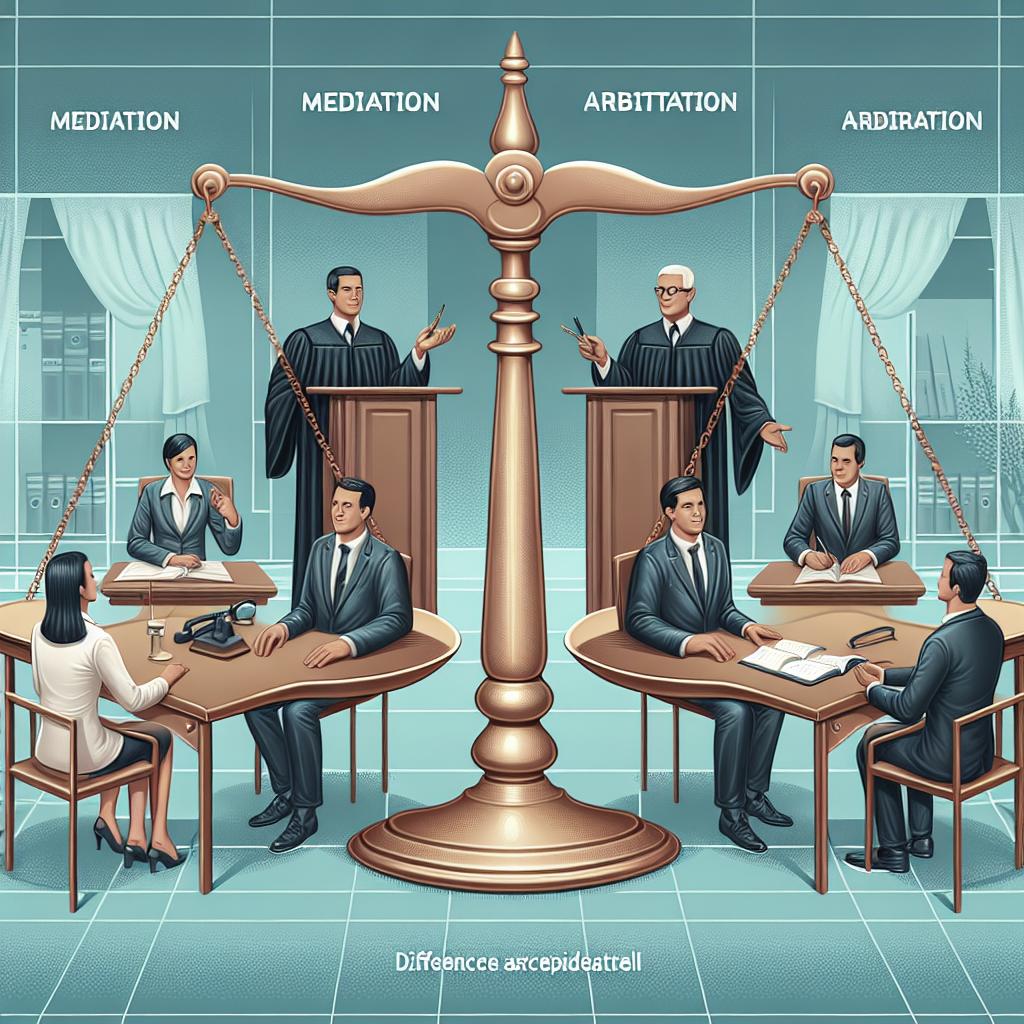“`html
Mediation vs. Arbitration: Understanding the Differences
In today’s complex and fast-paced world, disputes arise in various sectors ranging from corporate transactions to personal disagreements. Mediation and arbitration are two popular alternative dispute resolution methods that offer distinct approaches to resolving these conflicts. While both aim to reach amicable solutions, they differ significantly in process, formality, and outcomes. This blog post delves into the differences between mediation and arbitration, focusing on how each is utilized in negotiations, the importance of choosing the right conflict resolution method, and the future prospects for these alternatives. Whether you’re a business professional, a legal practitioner, or someone interested in conflict resolution, understanding these distinctions will empower you to make informed decisions when faced with disputes.
Announcements
We are thrilled to announce a new platform dedicated to hosting insightful discussions on alternative dispute resolution techniques globally. This launch stems from our commitment to educate and engage with individuals and professionals interested in effective conflict management strategies. Keep an eye on our website for upcoming webinars and workshops that will offer deeper insights into mediation and arbitration practices across different industries.
Additionally, we are excited to release an e-book that explores the intricacies of mediation and arbitration, featuring case studies, expert opinions, and practical tips. This resource will be available for download next month, providing a comprehensive guide for anyone seeking to enhance their understanding or skills in these areas. Stay tuned for more updates on our social media channels and website.
Links
For further reading on mediation and arbitration, here are some useful resources:
- American Bar Association: Alternative Dispute Resolution
- Centre for Effective Dispute Resolution: Mediation Services
- JAMS International: Arbitration Practices
These links provide valuable insights and practical information on handling disputes using mediation and arbitration. We encourage you to explore these resources to support your learning and application of these methods in your professional and personal engagements.
Why is Negotiation Important: Mediation in Transactional Negotiations
Negotiation is an essential skill in both personal and professional contexts, facilitating better communication, problem-solving, and relationship building. Mediation, as an extension of negotiation, plays a pivotal role in transactional negotiations. It empowers parties to collaboratively resolve their issues with the help of a neutral mediator, fostering a more open dialogue and a focus on mutual interests.
Mediation in transactional negotiations is especially important because it allows the involved parties to maintain control over the outcome. Unlike arbitration, where an arbitrator makes the final binding decision, mediation encourages the disputing parties to reach a consensus. This collaborative process not only saves time and resources but also often results in more sustainable and mutually beneficial agreements.
Moreover, in sectors like commercial real estate or international trade, mediation provides a platform for creative solutions that might not be achievable through litigation or arbitration. Mediators assist in identifying underlying interests and exploring alternative solutions, contributing to successful transactional negotiations.
Difference between Arbitration and Mediation
The fundamental difference between mediation and arbitration lies in their structure and approach. Mediation is a voluntary process where a neutral third-party mediator facilitates a discussion between the disputing parties to help them reach a mutually acceptable resolution. The mediator does not impose a decision but guides the conversation, ensuring both sides are heard and considered.
In contrast, arbitration involves a more formal process akin to a court proceeding, where an arbitrator (or a panel of arbitrators) reviews evidence and arguments presented and then makes a binding decision. Unlike mediation, where flexibility is paramount, arbitration can often resemble litigation in its procedural complexity and formality.
Another key difference is enforceability. Arbitration agreements and decisions are generally legally binding and can be enforced in a court of law. Mediation agreements, while they can be formalized into binding contracts, rely more on the parties’ commitment to uphold the agreement. This distinction highlights the importance of choosing the right method depending on the specific context and desired outcome of the dispute resolution process.
Future Prospects
As we look towards the future, the demand for alternative dispute resolution methods like mediation and arbitration is likely to increase. In a globalized economy, where cross-border transactions are common, businesses are recognizing the advantages of these mechanisms over traditional litigation. Mediation, with its emphasis on collaboration and understanding, is expected to gain traction in sectors that value long-term relationships and creative problem-solving.
Arbitration, with its legally binding outcomes and formal structure, will continue to be favored in situations where a definitive resolution is necessary, particularly in commercial and international disputes. As technology progresses, the integration of digital platforms and online dispute resolution systems will enhance accessibility and efficiency, propelling these alternatives to the forefront of conflict resolution practices.
| Aspect | Mediation | Arbitration |
|---|---|---|
| Process | Voluntary, collaborative, non-binding facilitation | Formal, resembles litigation, binding decision |
| Role of Third Party | Mediator guides, doesn’t impose decisions | Arbitrator makes binding decisions |
| Enforceability | Dependent on parties’ commitment, can form contracts | Enforceable in court as a binding decision |
“`


